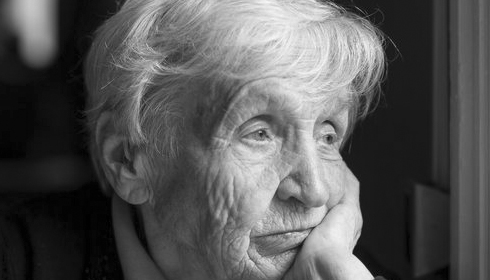
Breakthrough Therapy Slows Cognitive Decline in Elderly Depression Patients
In a landmark study a research team led by Dr. Tarek Rajji, the new Chair of Psychiatry at UT Southwestern Medical Centre, published in JAMA Psychiatry recently, revealling a unique combination therapy that could significantly reduce cognitive decline in older individuals with a history of depression. Long recognized as a major risk factor for Alzheimer's disease and other forms of dementia, this study marks a significant advancement in the field.
In collaboration with the Centre for Addiction and Mental Health (CAMH) and the Toronto Dementia Research Alliance (TDRA) at the University of Toronto, the study demonstrates that combining targeted electrical brain stimulation with specialised cognitive training not only improves cognitive function in elderly patients but also has the potential to delay further cognitive deterioration for up to six years. Dr. Rajji, a former Professor of Psychiatry and Director of the Geriatric Psychiatry Division at the University of Toronto, has contributed his significant knowledge to this groundbreaking study.
"A history of depression, even at younger ages, doubles the risk of dementia in older adults, and no intervention to date has shown to reduce this risk," he added.
Pointing out that their research has demonstrated that combining neuromodulation with specialized cognitive training can benefit older individuals with depression by reducing cognitive deterioration and allowing them to maintain function for an extended period, Prof . Rajji further added, " It's a significant step toward lowering the risk of Alzheimer's disease and other forms of dementia in people with a history of depression."
The randomised trial included 375 elderly people who had remitted major depressive disorder (MDD), mild cognitive impairment (MCI), or both. We divided the participants into two groups: control and experimental. The experimental group received the innovative therapy. Transcranial direct current stimulation (tDCS), a mild and noninvasive form of electrical stimulation for the prefrontal cortex, was used along with cognitive remediation, such as puzzles and logic problems, to help the brain work better. This brain area is essential for cognitive processing and adjustment in older persons.
Treatment sessions took place five days a week for eight weeks, with follow-up sessions every six months to check cognitive changes. The results were clear: subjects who got both cognitive remediation and tDCS had a considerably slower cognitive deterioration than the control group. The favorable benefit was most noticeable in patients with a history of remitted MDD with or without cognitive impairment, indicating a potential prophylactic effect for those at increased risk of dementia due to depression.
Dr. Rajji states that older adults with mild cognitive impairment have used the combined therapy strategy for short-term treatment. "This is the first time it has been evaluated in older adults with depression who have mild cognitive impairment or not, as well as isolated mild cognitive impairment, with up to six years of follow-up."
This study has the potential for a substantial impact. While short-term cognitive therapies have shown promise in a variety of categories, this study is one of the first to show long-term advantages for senior people with a higher risk of dementia owing to depression. The researchers intend to broaden the trial to confirm the findings in a wider and more diverse population sample, thereby establishing the therapy as a reliable preventative intervention for dementia.
UT Southwestern, with its superior research capabilities and multidisciplinary approach, is well positioned to continue and expand on this effort. Dr. Rajji expressed enthusiasm for continuing the research at UT Southwestern, particularly in enhancing neuromodulation techniques across departments. He also noted the possibility of developing a home-based intervention, which would provide greater access to this treatment and assist more people in managing their cognitive health.
"UT Southwestern is an ideal place to build on this work going forward, especially considering our expanding research in neuromodulation that is taking place across various departments," says Dr. Rajji. We could potentially create a home-use complementary intervention to assist a greater number of individuals.
As the population ages and dementia rates rise, novel therapies like those developed by Dr. Rajji and his team offer a critical frontier in geriatric mental health. This multimodal therapy, which targets both cognitive and neurological pathways in depression patients, provides hope for enhanced quality of life and delayed cognitive deterioration for millions of at-risk individuals.